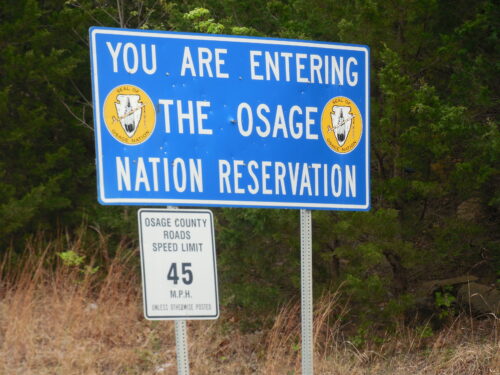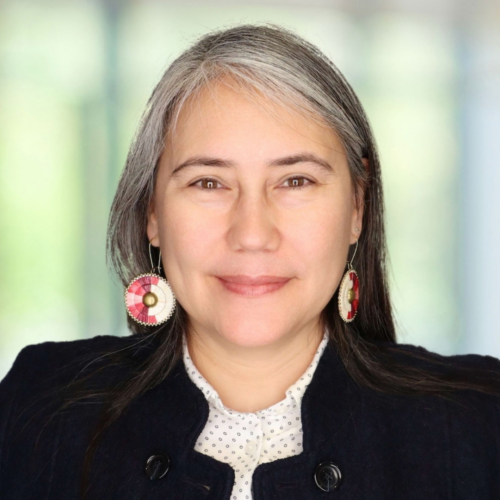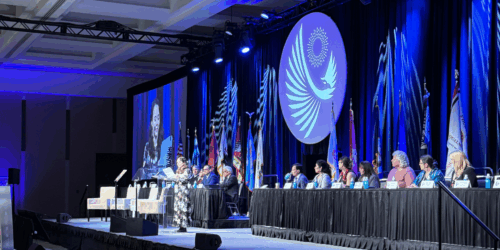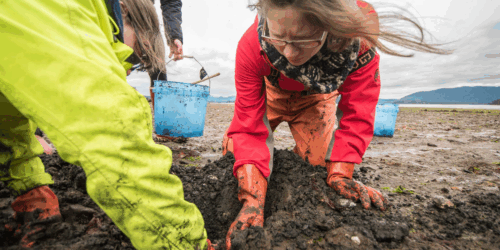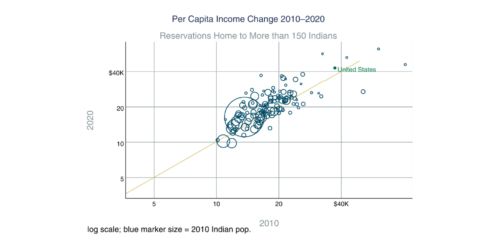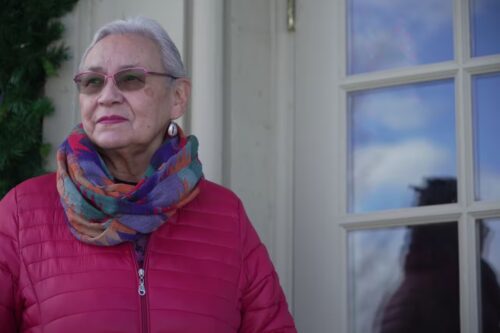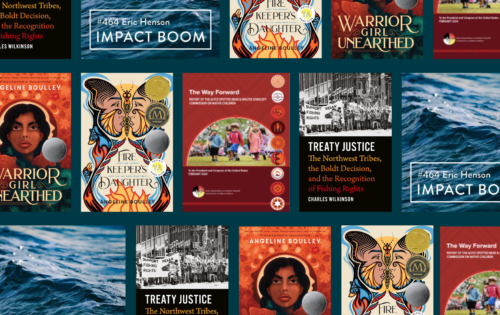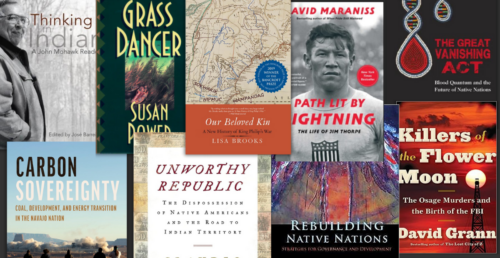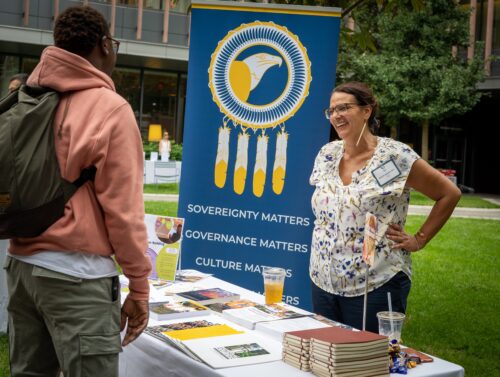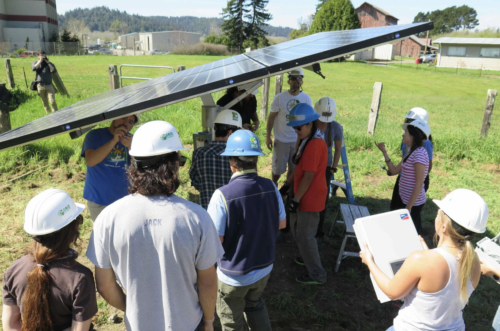
Randall Akee
Director, Project on Indigenous Governance and Development and Julie Johnson Kidd Professor of Indigenous Governance and Development
When Native nations make their own decisions they consistently outperform external decision-makers. Today, we’re answering the question: How can Indigenous governments exercise their sovereignty for better outcomes across the board?
Research from the Project on Indigenous Governance and Development shows that when Native nations exercise their sovereignty it leads to better outcomes across the board —from education to natural resource management. Yet, the path to sovereignty and self-governance isn’t always straightforward.
Our work aims to arm Indigenous people themselves with the tools to build thriving self-governments and strengthen their economic, social, and cultural fabrics. From events to research, we encourage you to explore the below to learn more about how we’re fostering Indigenous governance and nation-building.
Director, Project on Indigenous Governance and Development and Julie Johnson Kidd Professor of Indigenous Governance and Development
Senior Program Director for the Project on Indigenous Governance and Development
Program Director of the Ittapila Program for Nation Building Education and Outreach Endowment at the Project for Indigenous Governance and Development; Lecturer at Harvard Kennedy School
Assistant Director, Outreach and Communications, Project on Indigenous Governance and Development
Assistant Director for the Honoring Nations program at the Project on Indigenous Governance and Development
Media Release
The national awards program Honoring Nations, flagship program of the Harvard Project, announces the recipients of the 2025 Honoring Nations Awards, recognizing 6 governmental initiatives for outstanding excellence in tribal self-governance.
Policy Brief
Harvard Kennedy School researchers release global scoping review finding Indigenous conservation practices achieve equal or superior results in biodiversity protection, wildfire management and sustainable management of natural resources
Book
From the Harvard Project on Indigenous Governance and Development comes an updated third edition of a data book providing summary statistics for American Indian tribal communities in the lower 48 states using the public-use US Census and the American Community Survey data.
Media Release
The Harvard Project on Indigenous Governance and Development’s Honoring Nations program is thrilled to announce the selection of six outstanding tribal programs advancing to the site visit round for the 2025 awards.
Feature
Chief Sophie Pierre, a respected leader of the Ktunaxa Nation, has been named the Inaugural Senior Fellow in Indigenous Governance and Development at Harvard Kennedy School, starting in Spring 2025. Known for her groundbreaking work in governance, economic development, and cultural preservation, Pierre’s career has spanned over three decades, with significant contributions to Indigenous rights and self-determination. Her appointment to Harvard is a testament to her decades of leadership, resilience, and dedication to empowering future generations of Indigenous leaders.
Media Release
The Harvard Project on Indigenous Governance and Development’s Honoring Nations program is pleased to announce the selection of 18 semifinalists for the prestigious 2025 Honoring Nations awards.
Policy Brief
This policy brief analyzes the likely effects of newly Proposed Rules by the U.S. Treasury and the Internal Revenue Service. These Rules would (1) expand the governmental authority of federally recognized American Indian nations to design programs for the general welfare of their citizens, and (2) clarify the federal tax status of tribal government-owned enterprises. The study finds that adoption of the Proposed Rules would greatly strengthen the capacities of tribal governments, to the benefit of tribes and the United States as a whole.
Feature
From a fictional thriller to a leading report on Native children, the HKS Project on Indigenous Governance and Development shares recommendations for must-reads this summer.
Feature
Back-to-school recommended reads from the Harvard Project on Indigenous Governance and Development include books, articles, and podcasts that highlight Indigenous governance narratives.
Media Release
Nine tribal governance programs have been selected by the Harvard Kennedy School Project on Indigenous Governance and Development’s Honoring Nations program as 2023 All-Stars from the family of 142 Honoring Nations awardees.
Media Release
Recent gifts will significantly expand the impact of the Harvard Kennedy School Project on Indigenous Governance and Development.
Feature
Harvard Kennedy School Project on Indigenous Governance and Development gets $15 million in gifts to expand research, sharing innovation, best practices.
Feature
Every year, “Native Americans in the 21st Century: Nation Building I” brings students from around the world to learn where and when tribal sovereignty leads to improved economic, social, and cultural outcomes for Indigenous nations.
Feature
During a discussion at Harvard Kennedy School, activists featured in the film “There’s Something in the Water” warn that environmental racism continues to stymie efforts for clean water in Black and Indigenous communities in Nova Scotia.
Feature
Testifying before the Commission on Native Children, Kalt urged the federal government to continue to support tribal self-governance, and maintain supportive federal funding.
